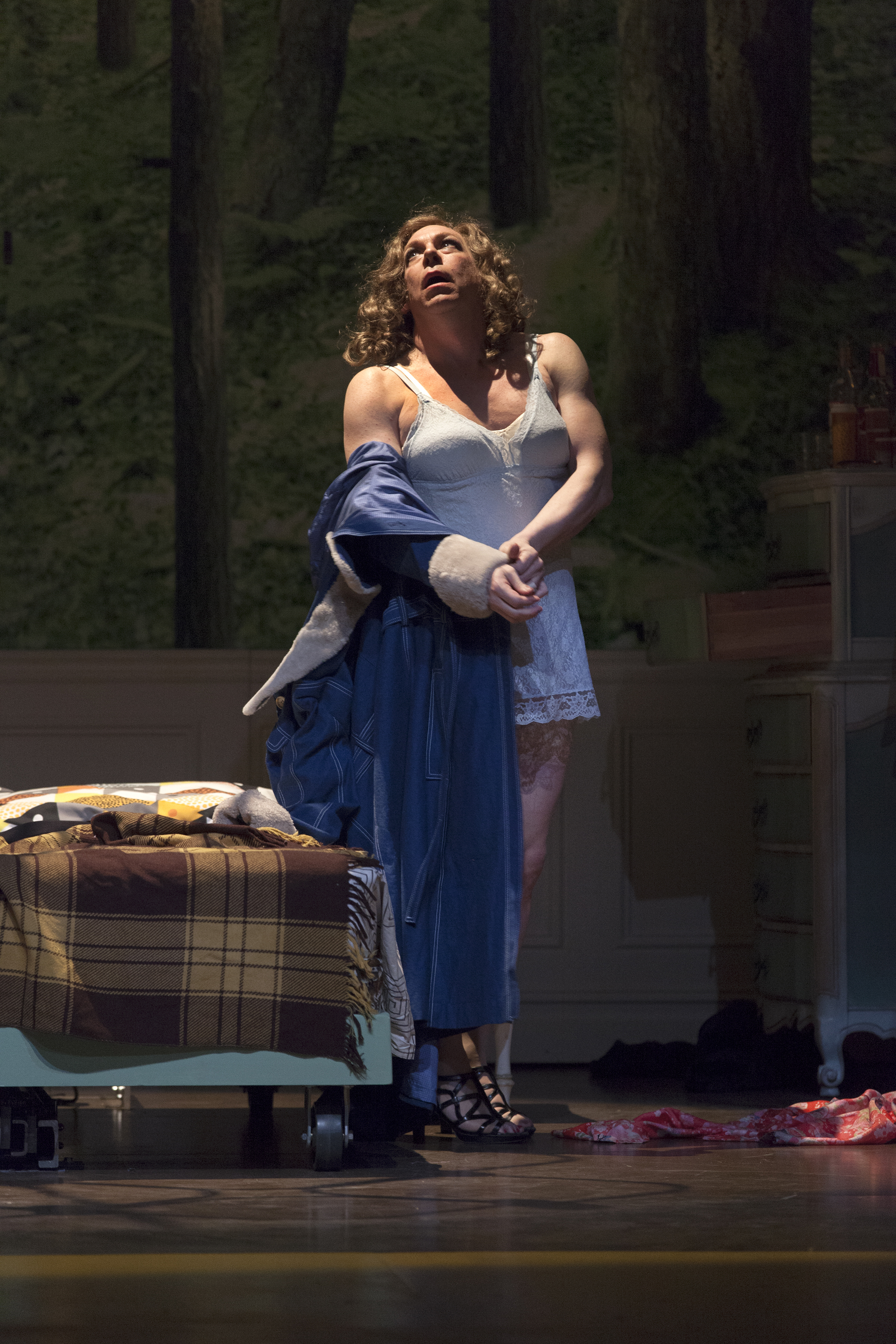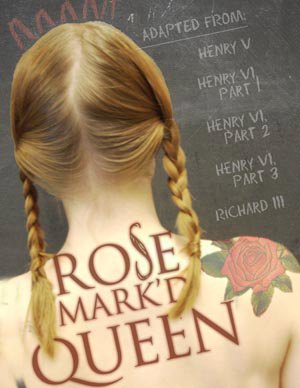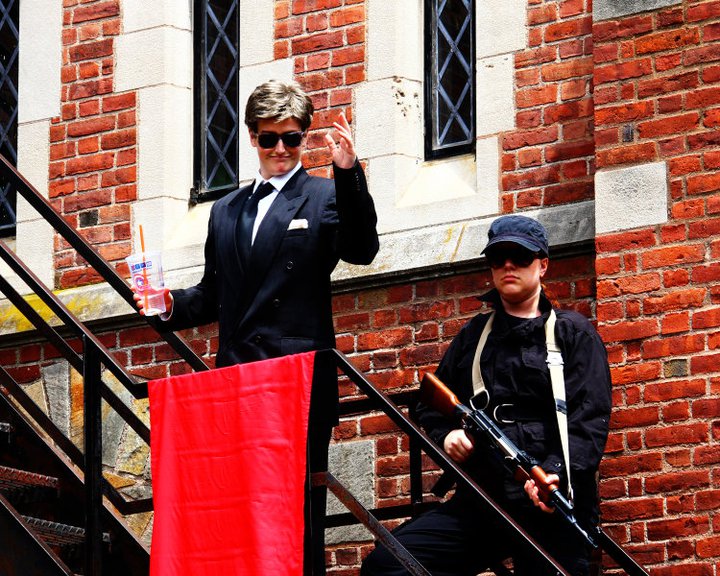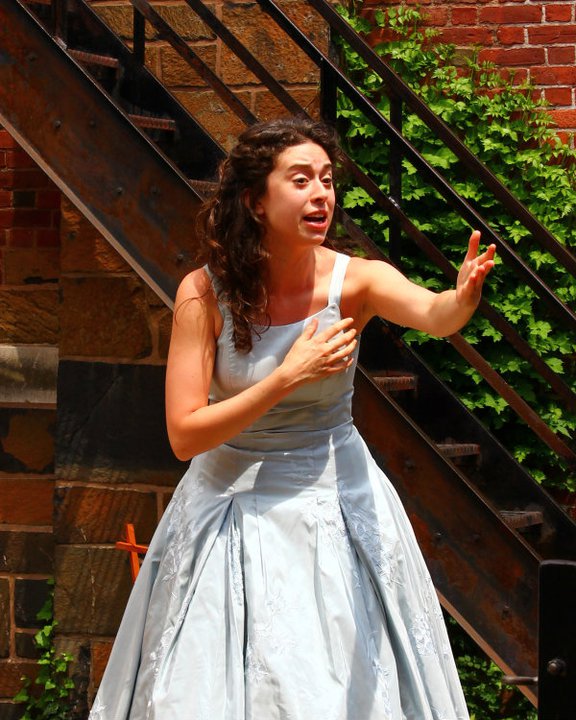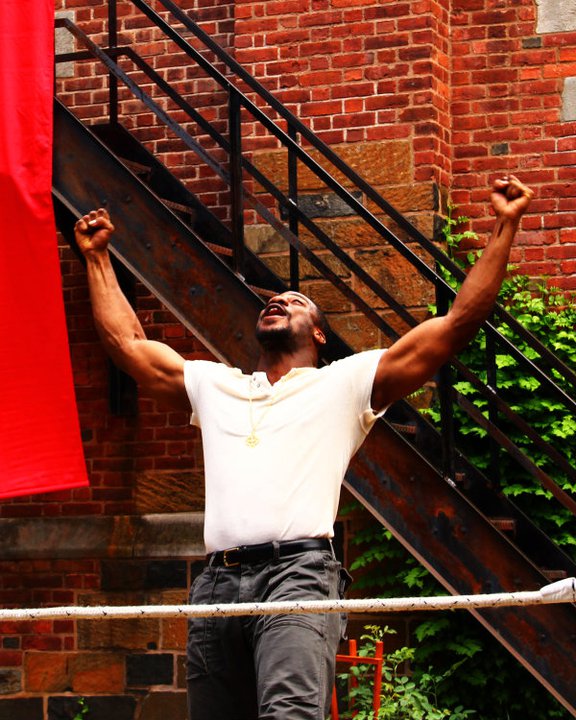Erismena at Yale Baroque Opera Project; Opera Triple Bill at Yale School of Music
Last month, Heartbeat Opera staged its first full production at the Sheen Center in New York and was hailed by the Wall Street Journal for “reformatting the opera experience from the grand to the deliberately intimate.” The artistic directors of Heartbeat—Ethan Heard and Louisa Proske, both graduates of the Yale School of Drama’s directing program—are, separately, back in New Haven to stage two programs of opera at Yale, this weekend and next, respectively.
Heard is back to direct for the Yale Baroque Opera Project, which began in 2007 with Heard, then a recent Yale grad, directing its first two productions. This time it’s Cavelli’s Erismena—the first YBOP production in English—for two performances at the University Theater, April 25 and 26 at 3 p.m., with Grant Herreid as musical director. Meanwhile, Proske is back in town to direct the Yale School of Music’s spring “Opera Triple Bill,” which will feature a program of three short operas: Lee Henry Hoiby’s Bon Appetit, Vaughn Williams’ Riders to the Sea, and Puccini’s Gianni Schicchi, May 2 at 8 p.m. and May 3 at 2 p.m. in Morse Recital Hall, with musical direction by Douglas Dickson and Timothy Shaindlin.
Heard’s work while at YSD featured much varied exploration of the possibilities of musical theater. His thesis show, Sunday in the Park with George, showed a masterful use of the University Theater, and his team for creating Erismena’s great production values includes many of the same YSD graduates he worked with then: Reid Thompson, Oliver Wason, Hunter Kaczorowski. In his work at Yale Cabaret, where he was the artistic director 2012-13, Heard explored, in Basement Hades, the intimate possibilities of chamber music and theater, and, in a striking production of Schoenberg’s Pierrot Lunaire, of performance and voice. His piece for Heartbeat last month, György Kurtág’s Kafka-Fragments, Heard says, in a sense “completes the trilogy.” The brilliant integration of the violinist/actor Jacob Ashworth with the singer/actor Annie Rosen—as a duo dressed in costumes of Kafka’s Prague—created an interplay of music and theater that has become characteristic for Heard. Using cinematic projections, props, subtitles, and schematic vignettes, Heard’s version of Kafka-Fragments presents a darkly romantic take on the existential phrases and aphorisms that Kurtág compiled to accompany his fascinatingly diverse score. Heartbeat was fortunate to find, in the Sheen Center’s black box theater, perfect accommodations for its opera on an intimate scale.
To minimize the size of Yale's University Theater for the sake of the intimacy he values, Heard is staging Erismena with a thrust stage, thanks to set designer Reid Thompson. And, though the musicians will not be actors as in Kafka-Fragments, they will be quite visible. Indeed, one of the attractions of baroque opera for Heard is that “it predates the huge orchestrations and spectacle of Wagnerian opera.” With fewer instruments, the musicians can be part of the show, on the stage instead of languishing in a pit. And that means Heard gets to show off the very beautiful instruments of the period, such as harpsichord and viola di gamba.
That Heard has been directing so much baroque opera, he says, is “simply coincidence.” He is just as much engaged by the Broadway musical, not only in his pull-out-all-the-stops thesis show but in work at the Berkshire Festival in Massachusetts—last year Heard directed A Little Night Music and this summer he’ll return for Bells Are Ringing—as well as a teaching/directing stint at Princeton where he worked with students to stage The Producers at the McCarter Theatre. The YBOP production also features strong student work, with more than 15 Yale students, both undergraduate and graduate, as actors and musicians. Heard believes that Cavelli’s music is generally accessible to student singers and Erismena, because it was transposed into English by an early admirer, is particularly accessible to a general audience.
Heard is quick to point out that he’s not just a music man; he continues to direct non-musicals and non-operatic works and hopes to take a crack at Shakespeare soon. Indeed, in his view, Erismena, with its complicated love plot combining comedy and drama, blends aspects of A Winter’s Tale, Twelfth Night, and Pericles. Bringing this lively work to the stage—with anachronistic touches such as a Cupid on roller-skates—combines many if not all of the skills Heard has been honing since his first post-graduate assignments with YBOP.
The show is free and open to the public; reservations are suggested but not required: ybop.yale.edu
Louisa Proske’s thesis for her MFA in directing was a very colorful and somewhat operatic version of Shakespeare’s Cymbeline and that same year she also staged a special project: Francis Poulenc’s one act opera La Voix Humaine featuring Jamilyn Manning-White of the Yale School of Music in a wonderful singing/acting tour de force. What attracts Proske to opera is the power that music and the singing voice adds to the dimensions of theater. Working, as she is again this spring, with singers in the Yale School of Music, Proske finds that singers, who are rarely schooled in dramatic presentation, are thrilled by the challenge of acting. The opera bill this year, though chosen by a process Proske was not involved in, has certain through-lines that make for thematic interest. In particular, Proske points out that all three pieces feature rather commanding roles for women.
Bon Appetit, by Menotti’s one-time student Lee Henry Hoiby, is based on Julia Child’s cooking program, and brings actual food preparation, and Child’s off-beat charm, to opera. Williams’ Riders to the Sea is adapted from J. M. Synge’s early twentieth-century tragic play set in the Aran Islands of Ireland, and focuses on Maurya, a woman who has lost her husband and five of six sons to the sea. Finally, in Puccini’s Gianni Schicchi, one of opera’s most popular arias, “O mio babbino caro,” is sung by Lauretta, Gianni Schicchi’s daughter. The opérette, derived from a story implied in Dante’s Divine Comedy, tells how Schicchi—punished in the Inferno for fraud—impersonates a man recently deceased so he can alter the man’s will at the request of his greedy family. Schicchi tricks the tricksters, but insists he did so after his daughter’s fond aria—“Oh My Beloved Father”—convinced him he must provide her with a dowry. In Proske’s view, Lauretta’s famous aria is actually a consummate bit of play-acting aimed to wrap dear old dad around her finger.
Tickets are $5-$10 for students, $10-$15, standard, at music-tickets.yale.edu
For Proske, opera is all about the heartfelt emotion that the human voice manifests in singing. In Heartbeat Opera’s spring production, Proske tempered the stringent tensions of Heard’s version of Kafka-Fragments with a bright and bawdy take on Offenbach’s Daphnis and Chloé. The production, with its naïve lovers, randy Pan, and lovesick bacchantes sporting costumes that seemed to combine every pop culture fad since glam, was a riot of color and sound, and even the very visible costumed musicians engaged in some clowning. In Proske’s hands, Offenbach’s opérette doesn’t undermine true love, but it does make sexual attraction a key feature of the proceedings: Pan seemed a seedy rocker on the scent of young stuff, while the bacchantes were all-too-eager to lead Daphnis off to an orgy. And there was considerable fun with the “pipes” of Pan. Indeed, the entire production seemed startlingly contemporary as was the unusually young audience.
Later this summer, Heartbeat Opera will go on a retreat to determine the projects for next year. In the meantime, this spring in New Haven offers excellent opportunities to see these two talented and creative directors present opera with a flair for the theatrical and a feel for voice over spectacle.
Yale Baroque Opera Project: Cavalli’s Erismena
Directed by Ethan Heard; Musical Direction by Grant Herreid
Yale University Theater, April 25 and April 26, 3 p.m.
Yale Opera Triple Bill:
Puccini’s Gianni Schicchi, Williams’ Riders to the Sea, Hoiby’s Bon Appetit
Directed by Louisa Proske; Musical Direction by Douglas Dickson and Timothy Shaindlin
Morse Recital Hall, May 2, 8 p.m.; May 3, 2 p.m.




